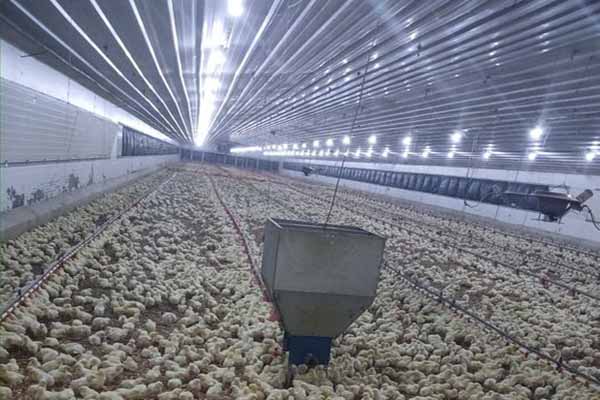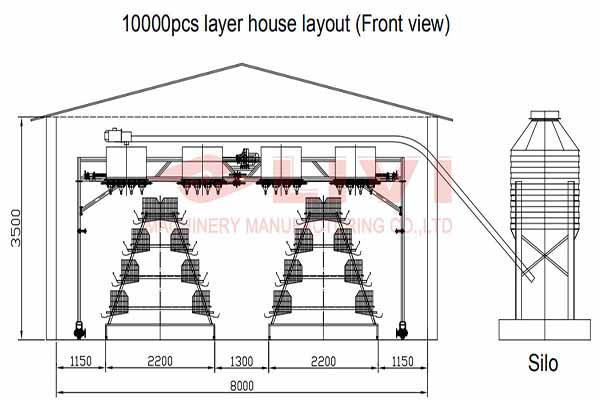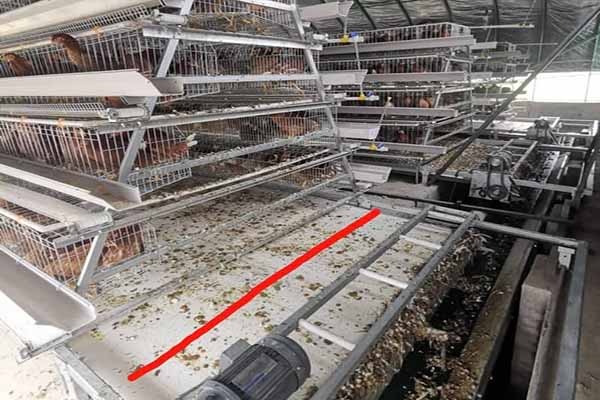Regular Inspection Items for Uganda Chicken Equipment – A Guide for Uganda’s Poultry Farmers from Livi Mechanical Equipment
Time : 2025-07-23
As a leading poultry equipment manufacturer based in China, Livi Mechanical Equipment is committed to providing high-quality and reliable equipment to poultry farmers in Uganda. To ensure the optimal performance and longevity of our products, it is essential to conduct regular inspections. In this article, we will discuss the regular inspection items for Uganda chicken equipment to help you maintain a healthy and productive flock.

1. Feeders and Drinkers
The proper functioning of feeders and drinkers is crucial for the health and growth of your chickens. Here are the key items to inspect:
- Check for cracks or leaks: Ensure that the feeders and drinkers are free from cracks or leaks that could lead to wastage or contamination of feed and water.
- Adjust the height and flow rate: Make sure that the feeders and drinkers are at an appropriate height for the size of your chickens and that the flow rate of water in the drinkers is suitable for their consumption.
- Cleanliness: Regularly clean the feeders and drinkers to prevent the growth of mold and bacteria that can harm your flock.
2. Brooder Heat Lamps
Brooder heat lamps are essential for the survival of baby chicks. Here’s what to look for during your inspections:
- Temperature reading: Use a thermometer to ensure the brooder heat lamp is providing the correct temperature for your chicks.
- Position and coverage: Make sure the lamp is positioned correctly to cover the entire brooder area and adjust the height as chicks grow to maintain the optimal temperature.
- Cord and bulb inspection: Check the cord for damage and the bulb for any signs of burnout.
3. Chicken Coop and Nest Boxes
The environment in which your chickens live is crucial for their well-being. Regular inspections should include:
- Structural integrity: Inspect the coop for any signs of wear and tear, such as rotted wood or missing nails, which could compromise the structure.
- Cleanliness: Keep the coop clean to prevent the buildup of waste and disease-causing bacteria. Regularly remove manure and replace litter.
- Airflow: Ensure proper ventilation to maintain a healthy environment for your chickens.
- Nest boxes: Check the nesting boxes for cleanliness, appropriate size, and sufficient numbers to accommodate all hens.
4. Perches
Perches provide chickens with a comfortable resting place and promote good posture. Here are some inspection points:
- Width and height: Ensure that the perches are at an appropriate width and height for your chickens, allowing them to rest comfortably without straining their legs.
- Material: Use sturdy, non-toxic materials for perches to prevent any risk of injury to your flock.
- Cleanliness: Regularly clean perches to prevent the accumulation of dust and droppings.
5. Roosters
Roosters can be an important part of your flock, but they also require special attention:
- Companionship: Roosters may become aggressive without the presence of hens. Ensure your roosters have access to hens for companionship and to keep their behavior under control.
- Health check: Inspect roosters regularly for any signs of injury or illness, and address any concerns promptly.
- Space: Provide ample space for roosters to roam without becoming a threat to your hens or other chickens.
6. Equipment Maintenance
Prope r maintenance of your chicken equipment is crucial to prevent costly repairs and downtime. Consider the following:
r maintenance of your chicken equipment is crucial to prevent costly repairs and downtime. Consider the following:
- Lubrication: Regularly lubricate moving parts of equipment such as feeders and drinkers to prevent rust and ensure smooth operation.
- Replacement parts: Keep a stock of common replacement parts on hand to quickly address any issues that arise.
- Training: Train your staff or family members on proper maintenance procedures to ensure consistency and efficiency.
By following these regular ins pection items for Uganda chicken equipment, you can maintain a healthy and productive poultry operation. Remember, a well-maintained environment and equipment contribute significantly to the overall well-being of your chickens.
pection items for Uganda chicken equipment, you can maintain a healthy and productive poultry operation. Remember, a well-maintained environment and equipment contribute significantly to the overall well-being of your chickens.











